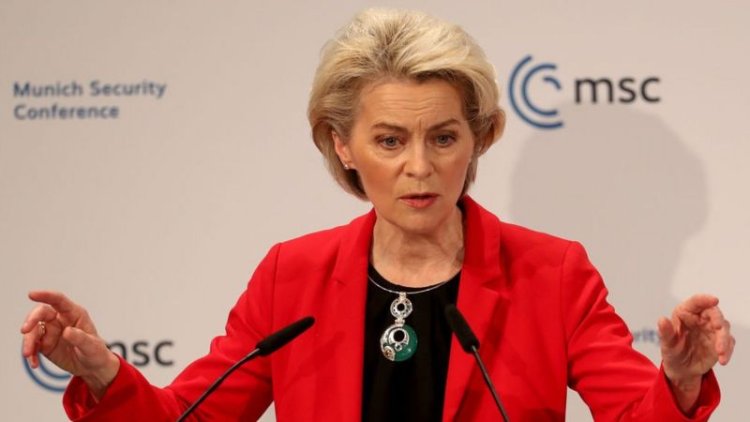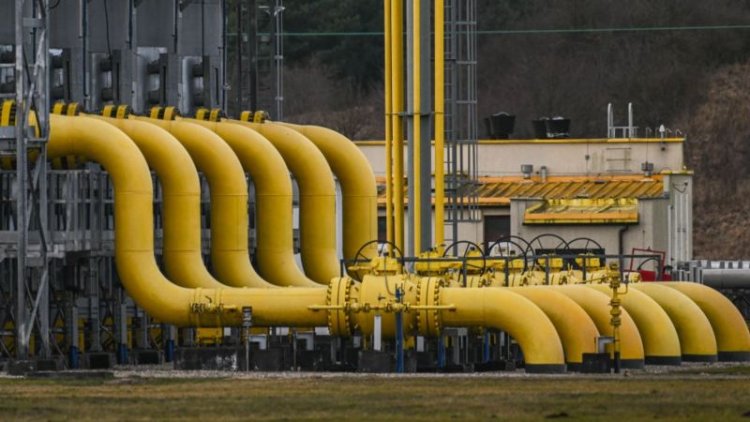As a result of Russia's alleged extortion, Gazprom has halted gas deliveries to Poland and Bulgaria.
European governments have angrily opposed the measure, which was intended to shore up the floundering currency that has been pummeled by Western sanctions.

After Russian energy giant Gazprom said it had turned off gas deliveries to Poland and Bulgaria, the two countries accused Moscow of "blackmail."
According to the BBC, Russia is attempting to "create splits" among Western allies, according to Poland's deputy foreign minister, Marcin Przydacz.
The move, according to EU Commission President Ursula von der Leyen, demonstrates Russia's "unreliability" as an energy supplier.
It comes after Poland and Bulgaria refused to pay in roubles for gas.
Russian President Vladimir Putin decided last month that all energy payments must be made in rubles.
European governments have angrily opposed the measure, which was intended to shore up the floundering currency that has been pummeled by Western sanctions.
In a statement issued on Wednesday, Gazprom said it had "completely suspended gas supplies" to Poland and Bulgaria in line with the decree issued by Mr. Putin.
The company also warned the countries - which are transit states for Russian gas - that any unauthorized withdrawal of gas intended for other European nations would see supplies reduced by an equivalent amount.
Polish state gas company PGNiG confirmed that Gazprom's supplies to the country had been halted and warned that it reserved "the right to seek compensation" and would use "all available contractual and legal means to do so".
In the first quarter of this year, PGNiG purchased 53% of its gas imports from Gazprom, but Warsaw has stated that it can obtain gas from other sources. The suspension was classified as a breach of contract, and the business said it will take efforts to restore gas delivery.
Bulgarian Prime Minister Kiril Petkov said the government was assessing all of its contracts with Gazprom, including those for Russian gas transit to Serbia and Hungary, and that "one-sided bullying" would not be tolerated.
Russia is using gas as a "political and economic weapon in the current fight," according to Bulgarian Energy Minister Alexander Nikolov.
Sofia, which relies on Gazprom for more than 90% of its gas supply, said it had taken steps overnight to locate alternate sources, but that no limitations on gas usage were required at this time.
On Wednesday morning, a slew of Western officials denounced Gazprom's move.
The decision to shut off gas supplies will have "a very severe effect on Russia," UK Deputy Prime Minister Dominic Raab told Sky News.
He went on to say that the decision would further isolate Russia and turn it into an "economic pariah."
EU Commission President Ursula von der Leyen stated in a statement that Gazprom's move was "unjustified and unacceptable," and that it demonstrated "once again Russia's unreliability as a gas supplier."
She added that the bloc was "prepared for this scenario" and that European leaders have been working to "ensure alternative deliveries and the best possible storage levels across the EU".

Ahead of Gazprom's move, Ukrainian President Volodymyr Zelensky's chief of staff accused Russia of "beginning the gas blackmail of Europe".
Andriy Yermak said that Moscow was seeking to use energy resources as a "weapon" and called on the EU to "impose an embargo on energy resources, depriving the Russians of their energy weapons".
But Vyacheslav Volodin, speaker of the Duma - the lower house of Russia's parliament - praised Gazprom's move and urged it to take similar action against other "unfriendly" countries.
Warsaw said it had "made some decisions many years ago to prepare for such a crisis," while PGNiG stated it's underground gas storage was about 80% filled and demand was falling as summer approached.
More than a third of Europe's gas demands are met by Russia, and Gazprom has a monopoly on pipeline supply in Russia.
While the EU has stated unequivocally that it would not comply with Mr. Putin's demand that payments be made in roubles, other European countries, like Slovakia and Hungary, have signed agreements with Gazprom to find a workaround.
The countries will put the money into a euro-denominated account with Gazprombank, a subsidiary of the Russian energy behemoth, which would then deposit it in roubles.

 Boakyewaa Lawrencia
Boakyewaa Lawrencia 



































